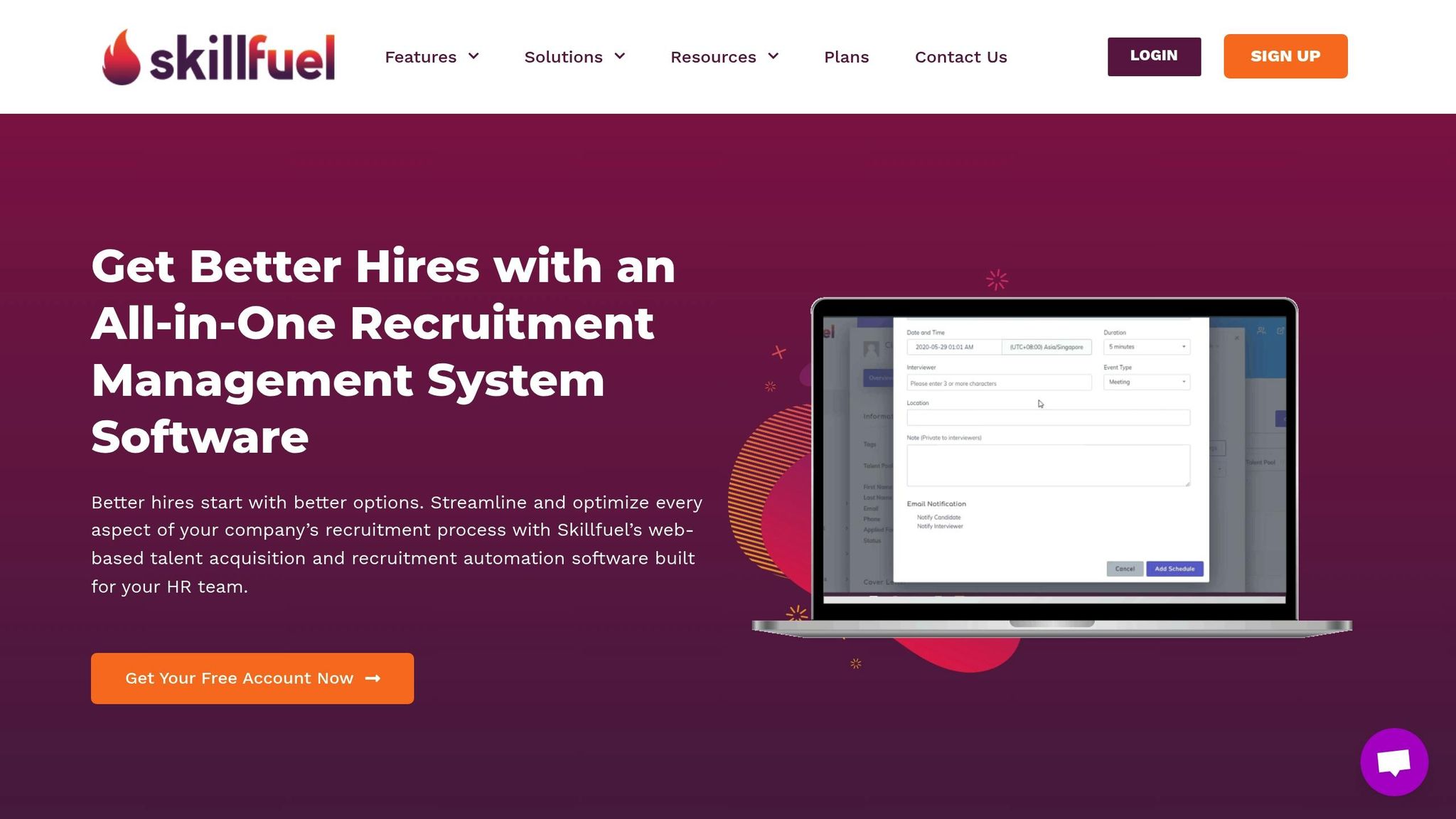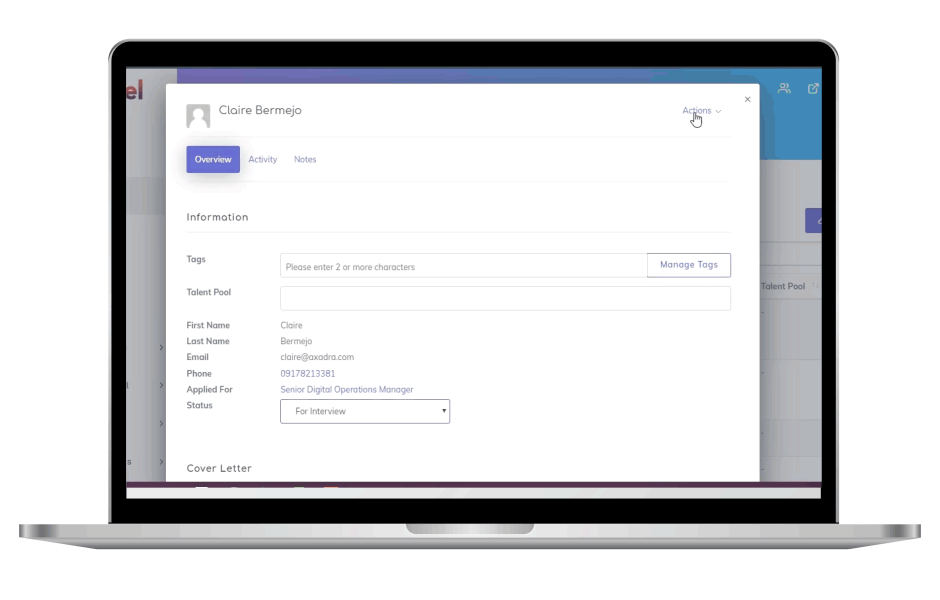Behavioral interview questions are a proven way to evaluate soft skills by focusing on candidates’ past experiences. These questions, structured around the STAR method (Situation, Task, Action, Result), help uncover how individuals communicate, solve problems, collaborate, and manage challenges. Soft skills like communication, teamwork, problem-solving, leadership, emotional intelligence, and time management are critical for long-term success in any role.
Key Takeaways:
- Why It Matters: Soft skills often influence workplace success more than technical abilities.
- How It Works: Behavioral questions require candidates to share real-life examples, offering a window into their abilities.
- What to Ask: Questions target skills like communication (“Tell me about a time you explained a complex idea”), teamwork (“Describe a project involving diverse colleagues”), and leadership (“Share an example of taking charge without formal authority”).
- Evaluation: Use consistent criteria, structured rubrics, and follow-up questions to assess candidates fairly.
Behavioral interviews, when done right, provide insights into how candidates may perform in real-world situations, helping you make better hiring decisions.
The Most Common Behavioral Interview Questions
Main Soft Skills Evaluated in Behavioral Interviews
Behavioral interviews are crafted to delve into the soft skills that set great employees apart from the rest. These interviews help recruiters ask targeted questions and allow candidates to prepare effectively. The most sought-after soft skills reflect how individuals collaborate with others, tackle challenges, and adjust to new circumstances. Communication, teamwork, problem-solving, leadership, emotional intelligence, and time management often top the list for hiring managers across industries. These skills form the backbone of the behavioral interview questions we’ll explore later.
Core Soft Skills Recruiters Focus On
Understanding these skills ensures a thorough evaluation process and aligns with the behavioral questions checklist.
Communication skills are the cornerstone of workplace interactions. This includes verbal and written communication, active listening, and the ability to tailor messages to different audiences. Strong communicators can simplify complex ideas, ask insightful questions, and provide constructive feedback.
Teamwork and collaboration highlight how individuals function within a group setting. It’s not just about getting along with coworkers – it’s about contributing to shared goals, offering support when needed, and navigating diverse working styles. Great team players know when to lead, when to step back, and how to foster consensus even in the face of differing opinions.
Problem-solving and critical thinking reveal how candidates address challenges and make decisions. These skills involve breaking down complex problems, gathering relevant information, exploring various solutions, and implementing effective strategies. Skilled problem-solvers also learn from setbacks and refine their approaches for future success.
Leadership potential is valuable even in roles without formal leadership responsibilities. Employers look for individuals who can take initiative, mentor others, and drive projects forward, especially under pressure.
Emotional intelligence combines self-awareness, empathy, and the ability to manage emotions effectively. Employees with high emotional intelligence handle stress gracefully, respond thoughtfully to feedback, and build strong relationships. They can read social cues, adapt their communication style, and remain professional even in high-pressure situations.
Time management and organization are critical for productivity and dependability. These skills involve prioritizing tasks, meeting deadlines, and juggling multiple responsibilities without sacrificing quality.
Adaptability is increasingly important as workplaces evolve. This skill reflects an openness to new technologies, a willingness to adjust to organizational changes, and the ability to maintain performance during transitions. Adaptable employees view change as an opportunity and often help others navigate uncertainty.
Conflict resolution is essential for maintaining healthy team dynamics. This skill involves addressing disagreements diplomatically, finding common ground between conflicting viewpoints, and facilitating productive discussions. Skilled conflict resolvers also recognize when to escalate issues to management and when to handle them independently.
While the importance of each skill varies depending on the role and company culture, most organizations value candidates who excel across multiple areas rather than focusing on just one or two. For instance, customer-facing roles often prioritize communication and emotional intelligence, while project management positions lean heavily on organization and leadership.
These skills often overlap in real-world situations. For example, solving a complex problem might require strong communication to gather insights from stakeholders and emotional intelligence to manage frustrations along the way. Recognizing these connections allows interviewers to craft questions that assess multiple competencies at once.
Behavioral Questions Checklist for Soft Skill Assessment
Below is a curated list of behavioral interview questions designed to assess specific soft skills using the STAR method. These questions encourage candidates to share real-life examples from their professional experiences, helping to evaluate their performance in workplace scenarios.
Questions for Communication Skills
These questions aim to gauge how well a candidate conveys ideas, adapts to their audience, and listens actively.
- "Tell me about a time when you had to explain a complex concept to someone who wasn’t familiar with the subject."
This question highlights the candidate’s ability to simplify complex ideas and communicate effectively. Look for examples that involve patience, creative ways of explaining, and confirming the other person’s understanding. - "Describe a situation where you had to deliver difficult news or feedback to a colleague or client."
Strong responses should include preparation, careful word choice, and thoughtful follow-up actions to ensure the message was received constructively. - "Give me an example of when you had to actively listen to understand a problem before offering a solution."
Candidates should demonstrate patience, ask clarifying questions, and show they value the speaker’s perspective before jumping to conclusions. - "Tell me about a time when miscommunication caused a problem at work and how you resolved it."
Answers should reflect accountability, steps taken to resolve the issue, and proactive measures to prevent future misunderstandings.
Next, let’s explore questions that assess leadership and teamwork, focusing on how candidates interact and collaborate with others.
Questions for Leadership and Teamwork
These questions are designed to evaluate how candidates influence, collaborate, and contribute to team dynamics, even without formal authority.
- "Describe a time when you had to motivate a team member who was struggling with their performance."
Look for responses that demonstrate empathy, clear communication, and a measurable improvement in the team member’s performance. - "Tell me about a project where you had to work with people from different departments or backgrounds."
Strong answers should highlight respect for diverse perspectives and how collaboration led to successful outcomes. - "Give me an example of when you had to resolve a conflict between team members."
Candidates should show neutrality, strong listening skills, and an ability to address the root cause of the conflict while maintaining team harmony. - "Describe a situation where you had to take charge of a project or initiative without formal authority."
Effective responses will include examples of how the candidate built consensus, delegated tasks, and achieved results through influence rather than position. - "Tell me about a time when your team failed to meet a goal and how you handled it."
Look for accountability, lessons learned, and steps taken to improve future performance.
Questions for Problem-Solving and Change Management
These questions assess how candidates approach challenges, adapt to change, and think critically under pressure.
- "Walk me through a time when you had to solve a problem with limited information or resources."
Responses should highlight resourcefulness, thoughtful risk-taking, and decision-making despite incomplete data. - "Describe a situation where you had to adapt quickly to a significant change in your role or organization."
Look for examples of flexibility, proactive learning, and efforts to help others adjust to the change. - "Tell me about the most complex problem you’ve solved at work and your approach to solving it."
Strong answers will detail how the candidate broke down the problem, explored potential solutions, and implemented the best course of action. - "Give me an example of when you identified a process improvement opportunity and implemented it."
Candidates should describe their analysis, the steps they took to propose and execute the improvement, and the measurable impact it had. - "Describe a time when your initial solution to a problem didn’t work and what you did next."
Look for persistence, adaptability, and a willingness to learn from setbacks to find a better solution.
Now, let’s turn to questions that delve into emotional intelligence, which is integral to managing relationships and navigating workplace challenges.
Questions for Emotional Intelligence
These questions focus on self-awareness, empathy, and interpersonal skills, especially in high-pressure situations.
- "Tell me about a time when you had to manage your emotions in a challenging work situation."
Effective responses should demonstrate awareness of emotional triggers, strategies for staying composed, and the ability to perform effectively under stress. - "Describe a situation where you had to work with someone whose personality or work style was very different from yours."
Look for examples of finding common ground, respecting differences, and collaborating successfully despite challenges. - "Give me an example of when you recognized that a colleague was struggling and how you responded."
Strong answers will show empathy, appropriate offers of help, and respect for boundaries. - "Tell me about a time when you received criticism or negative feedback and how you handled it."
Candidates should demonstrate openness to feedback, a willingness to ask clarifying questions, and actionable steps they took to improve. - "Describe a situation where you had to remain calm and professional while dealing with an upset customer or colleague."
Look for patience, active listening, and a focus on resolving the issue while maintaining positive relationships.
These questions offer a structured way to evaluate critical soft skills, providing insight into how candidates handle real-world challenges through specific actions and measurable outcomes. By focusing on their past behavior, you can better predict their future performance.
sbb-itb-e5b9d13
Best Practices for Using Behavioral Questions
Following a behavioral questions checklist is just the beginning. To truly make the most of behavioral interviews, it’s essential to focus on preparation, consistent evaluation, and fairness. These steps ensure you can effectively identify candidates with the soft skills your organization values.
Preparing for Behavioral Interviews
The success of a behavioral interview starts well before meeting the candidate. As MIT’s Career Advising & Professional Development explains:
"The purpose of behavioral interviewing is to objectively measure a potential employee’s past behaviors as a predictor of future results".
This kind of objective assessment begins with careful preparation.
Start by analyzing the job description for action verbs that highlight key soft skills. For example, terms like "collaborate", "lead", or "adapt" can point to the traits you should focus on during the interview.
Build a question bank tailored to the role. Identify both technical and transferable skills required for the position. For instance, a project manager might need questions that test leadership and problem-solving, while a customer service role would benefit from questions about emotional intelligence and communication.
You can also use external resources, like Glassdoor Interview Reviews, to find tested and effective questions.
Once you’re prepared, your next priority is evaluating responses fairly and consistently.
Evaluating Responses Consistently
Consistency is what separates a professional interview from a casual conversation. Without a structured evaluation process, even the best questions can fail to predict future performance.
Start by creating a standardized scoring rubric. LinkedIn‘s Talent Solutions highlights some of the most critical soft skills for success:
"Interviewers called out the following soft skills as the best indicators of which candidates will excel: Adaptability, Culture add, Collaboration, Leadership, Growth potential, Prioritization".
Use these insights to define clear criteria for evaluating responses, outlining what weak, adequate, strong, and exceptional answers look like for each skill.
Incorporate structured methods like the STAR format (Situation, Task, Action, Result). Strong responses should include specific examples that follow this structure. If a candidate’s answer is too general, ask follow-up questions to prompt more detail.
Document responses immediately after each interview. Writing down details while they’re still fresh ensures you can accurately compare candidates later.
Avoiding Bias and Ensuring Fair Interviews
Even with a solid scoring system, fairness can be compromised by unconscious bias. Taking steps to standardize the process helps create an equitable experience for all candidates.
Use consistent settings for interviews, including the same locations, timeframes, and a core set of questions for each role. Diverse interview panels can offer varied perspectives and help ensure evaluations are balanced. Make sure all panel members are familiar with the scoring criteria.
Be mindful of different communication styles, especially those influenced by cultural backgrounds. Focus on the substance of a candidate’s example rather than how it’s delivered.
Ask every candidate the same core behavioral questions for a specific role. While follow-up questions will naturally differ based on individual answers, this approach ensures everyone has an equal chance to showcase their skills.
Regularly review your evaluation patterns. If certain groups consistently score lower, examine whether your criteria might unintentionally favor specific styles or experiences. Keeping thorough documentation of your decisions also supports objective and defensible hiring practices.
Using Skillfuel for Behavioral Interviews
Handling behavioral interviews effectively isn’t just about asking the right questions – it’s about having a system that ensures consistent evaluation, organizes feedback, and keeps your hiring team aligned. Skillfuel’s recruitment management software simplifies every step of the process, from scheduling interviews to evaluating candidates.
Features Supporting Behavioral Interviewing
Skillfuel brings all candidate feedback together in one place, eliminating the hassle of endless email chains.
It also streamlines post-interview activities by automatically organizing debrief meetings, making it easy to capture and share important insights about candidates.
One standout feature for behavioral interviews is its automated reminder system. Skillfuel keeps the evaluation process on track by sending timely reminders to hiring managers, ensuring feedback on candidates doesn’t fall through the cracks.
Improving Efficiency with Skillfuel
Skillfuel doesn’t just simplify interviews – it makes them faster and more efficient. Automation plays a big role here. For instance, Skillfuel’s automated scheduling feature can save recruiters up to 50 minutes per applicant. That’s extra time recruiters can use to focus on crafting thoughtful behavioral questions or diving deeper into candidate responses.
Additionally, the platform’s centralized feedback system ensures that all evaluations are collected in one place, making it easier to assess candidates consistently. This setup is especially helpful for evaluating soft skills, which are often a key focus in behavioral interviews.
Conclusion and Key Takeaways
Behavioral interviews have become a cornerstone of modern hiring because they provide a window into a candidate’s soft skills through real-life examples. These skills – like communication, leadership, emotional intelligence, and problem-solving – are often the deciding factors in whether someone will excel in your organization. While technical skills can be taught, finding individuals who naturally collaborate, adapt to change, and stay calm under pressure is far more challenging.
Key Points Recap
Consistency through structured questions
Using a well-organized checklist ensures every candidate is evaluated fairly. By asking all candidates the same core questions about teamwork, communication, and leadership, you can compare their responses more effectively and make better hiring decisions.
Soft skills are the foundation of success
Employees with strong interpersonal and emotional intelligence skills tend to navigate team dynamics and organizational changes with ease. As remote work and cross-functional collaboration become the norm, these qualities are more important than ever.
Streamlining with technology
Tools like Skillfuel bring structure to behavioral interviews, helping you gain deeper insights into candidates while simplifying administrative tasks.
These strategies create a hiring process that’s both thorough and efficient, helping you build teams that align with your company’s values and goals.
FAQs
What’s the best way to prepare for a behavioral interview?
To get ready for a behavioral interview, it’s a good idea to use the STAR method (Situation, Task, Action, Result) to structure your answers. This method helps you share clear, focused examples of your past experiences while showcasing your skills and achievements.
Begin by reviewing the job description carefully to pinpoint the key soft skills the employer values, like problem-solving, leadership, or teamwork. Then, think back to specific moments in your career where you displayed these abilities. Practicing your responses out loud can help you feel more confident and ensure your examples are relevant and natural.
You might also want to revisit past performance reviews or feedback to uncover strengths worth highlighting. By preparing detailed and organized answers, you’ll be well-equipped to make a strong impression during the interview.
How can I ensure a behavioral interview process is fair and unbiased?
To build a fair and impartial behavioral interview process, begin with structured interviews that use a consistent set of questions for all candidates. This approach ensures everyone is assessed on the same criteria. Encourage applicants to follow the STAR method (Situation, Task, Action, Result) when sharing examples. This technique helps them provide clear, detailed responses, making it easier for interviewers to evaluate their answers objectively.
It’s also essential to train interviewers to identify and minimize unconscious bias. Including diverse interview panels can further balance perspectives and contribute to a more equitable process. Together, these measures create a fairer and more inclusive evaluation system for every candidate.
How does Skillfuel make behavioral interviews more efficient?
Skillfuel makes behavioral interviews easier by offering tools that simplify scheduling, keep track of interview progress, and centralize candidate details. Recruiters can effortlessly organize and access interview questions, ensuring the process stays smooth and consistent.
By using Skillfuel, managing interviews becomes less of a hassle, saving valuable time and creating a better experience for both recruiters and candidates.













